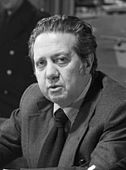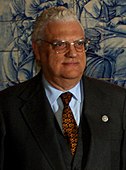Portuguese legislative election, 1976
|
|
|||||||||||||||||||||||||||||||||||||||||||||||||||||||||||||||||||||||||||||
|---|---|---|---|---|---|---|---|---|---|---|---|---|---|---|---|---|---|---|---|---|---|---|---|---|---|---|---|---|---|---|---|---|---|---|---|---|---|---|---|---|---|---|---|---|---|---|---|---|---|---|---|---|---|---|---|---|---|---|---|---|---|---|---|---|---|---|---|---|---|---|---|---|---|---|---|---|---|
|
|||||||||||||||||||||||||||||||||||||||||||||||||||||||||||||||||||||||||||||
|
263 seats to the Portuguese Assembly 132 seats needed for a majority |
|||||||||||||||||||||||||||||||||||||||||||||||||||||||||||||||||||||||||||||
|
|||||||||||||||||||||||||||||||||||||||||||||||||||||||||||||||||||||||||||||
|
|||||||||||||||||||||||||||||||||||||||||||||||||||||||||||||||||||||||||||||
| Portugal |
 This article is part of the series: |
Vasco de Almeida e Costa (interim)
Independent
This article is part of the series:
Politics and government of
Portugal
The Portuguese legislative election of 1976 took place on 25 April, exactly one year after the previous election, and two years after the Carnation Revolution. With a new Constitution approved, the country's main aim was the economical recovery and the strengthen of the democratic conquests.
The election was won again by the Socialist Party and Mário Soares, its leader, became the Prime-Minister of the 1st Constitutional government on 23 July. The lack of a socialist majority forced this party to form an unexpected coalition with the Democratic and Social Center, the party on the right end of the political spectrum at the time. The nature of such coalition, between a party that defended the socialist way to the country and another that voted against the constitution because of its socialist influences surprised most of the Portuguese voters and marked the start of the right-wing turn of the Socialist Party that would soon be attacked by all the left due to the new government measures against the left-wing conquests of the revolution, mainly the agrarian reform.
The Social Democratic Party was the second most voted party and the Portuguese Communist Party achieved a relevant increase in the voting, showing its growing influence, mainly in the south of the country.
The major parties involved and the respective leaders:
...
Wikipedia




